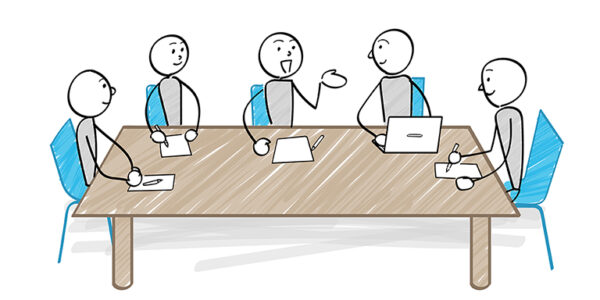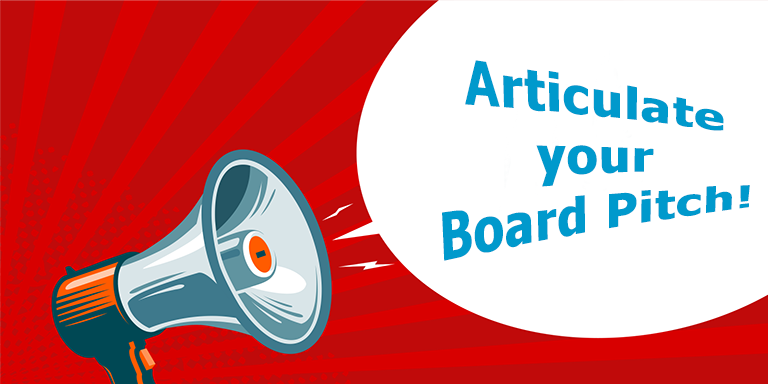Board Networking: Strong ties Vs weak ties

Recognizing the significance of networking is crucial when pursuing a position on a board. The statistics show that 65% of people are directly appointed to a board through a personal or professional connection. While knowledge is valuable, the saying “it’s who you know, not what you know” holds some truth. However, you might be surprised to find out which of your connections in board networking will most likely help you secure a board seat. Understanding the value of weak and strong ties will make board networking more straightforward and effective.
Who are your strong and weak ties?
Our personal and professional networks comprise both strong and weak tie relationships. A strong tie is defined as a connection between close-knit individuals. These are people you know well, and they know you. You engage with them frequently and communicate openly through productive, mutual dialogues. You may not know everything about them, but you know them well. The strong characteristics of these relationships are determined by emotional connection and familiarity.
On the other hand, weak ties are more distant connections characterized by infrequent interactions. Due to the infrequency of the relationship, these people usually have no preconceived ideas of who you are or what you do. They lack both emotional attachment and professional investment in your success.
Weak ties – the statistics
According to well-respected journalist Malcolm Gladwell, your Weak Ties make you powerful. He points to sociologist Mark Granovetter (Stanford University) and his famous study “Getting a Job”. After surveying Boston workers, the study found that 56% got jobs through a personal connection. The study went further, concluding that most of those connections were considered weak ties. Only 17% of people who got a job through a personal connection saw that contact often. Almost 55% saw them occasionally, and 28% saw them rarely – your ‘weak ties’.
“83% of people who gained a job through a connection saw that person rarely or infrequently – weak ties.”
I regularly conduct surveys asking current board directors how they were appointed to their most recent board seat. My findings are very similar to the study above, with 65% of people telling me that they were appointed to a board through a personal or professional connection, with the vast majority of these connections being weak ties. So, gaining a board seat is often about “who you know, not what you know” and focusing on the right ”who”, being your weak ties.
Why strong ties are less valuable for board networking
When we think about whom to turn to for help getting a board seat, most of us immediately think of our strong ties. After all, they know us well, and we trust them. However, the very nature of being a strong tie makes them unlikely actually to help.
There are clear reasons why strong ties are unlikely to assist you in securing a board seat:
- Suppose your strong tie is a close friend. It is doubtful they have ever seen you operate in that role; therefore, they feel uncomfortable recommending you for a board seat.
- Your strong ties primarily know you in other professional or personal roles – the lawyer, accountant, friend, busy CEO, retiree, entrepreneur, soccer coach, etc., and not an independent board director. As a result, they don’t think of you when they hear of appointment opportunities.
- They often know you too well, including your flaws and failings. They remember when your product launch failed or what you were like after that 2nd drink. They don’t want to risk their or your reputations by putting you forward.
- Whilst they like you, they may not rate you. They enjoy spending time with you, but professionally, they may think you are not good at what you do or ready for a board seat. Recommendations will not be forthcoming.
- Finally, and most importantly, they want to avoid the potential to damage a strong friendship or relationship built over many years. You may even risk damaging the relationship by asking them to help.
Some of these reasons may seem cruel or impersonal, but put yourself in their shoes. I am sure you have close friends or family members that, even though you love dearly, you would never recommend for a board seat or introduce them to your valuable contacts that you know could help.
Enjoy board networking by building weak ties
Many of us are hardwired to hate networking. We find it selfish and uncomfortable to focus on creating relationships to promote our careers, including a board career. But don’t let this put you off. It is the very nature of weak tie relationships that makes the board networking process pleasant and less stressful. It does not require thick skin or attending laborious networking events.
Weak tie networking centers around brief and fleeting interactions with connections that can yield meaningful outcomes. A chance meeting at a dinner or soccer training with the kids can lead to a board appointment. Several months ago, a client told me how he was appointed to a board seat after a casual day’s sailing with the father of his daughter’s friend. They started chatting about what each other did. When a board opportunity arose, this simple conversation resulted in him being offered the seat.
Engaging in weak tie board networking can be straightforward, avoiding the awkward scenarios typically linked to traditional networking. To be successful, however, you must have a board profile and a board pitch. You must be able to articulate what value you can add to a board and the types of board seats you are looking for. Due to the fleeting nature of many of these interactions, you must also have a 30-second board pitch.
Three simple elements to consider when developing relationships with weak ties are curiosity, authenticity, and follow-through.
- Curiosity shows that you want to learn about the other person, and asking questions will keep the conversation engaging. Listen, learn and take note of the conversation, as you never know when they or the information will become helpful in the future.
- Authenticity will come from a “How can I help?” mantra. Don’t think about the value you can extract from a conversation with a weak tie, but rather focus on the value you can give them. This approach will also help you feel more comfortable about the networking process.
- Follow through on your offers of help. You will lose credibility and trust if you fail to. Get it done as soon as possible, before becoming distracted by something else.
Strong ties have a place in Board Networking
Strong ties have a role in board networking, but you must know how best to use them. You need to find out if your strong tie is willing and able to assist you in gaining a board appointment. At the same time, you need to consider if doing so will jeopardise your relationship with them, whether it’s a business or personal relationship. If unsure, ask yourself, “Would a refusal to help offend you?”. If the answer is yes, then you know the relationship is not worth risking.
If you are comfortable going ahead, consider asking them for advice on pursuing a board seat, or seek their professional feedback on your suitability for a board role instead of asking for help upfront. Use them as a sounding board when determining what skills and experience you have to offer a board. They may then surprise you with offers of introductions or recommendations further down the line.
In Conclusion
These studies and statistics tell us that, when board networking, you should primarily focus on weak ties. They also reveal that you are three times more likely to gain your board seat through an informal, even fleeting, connection than through an advertisement, headhunter or other formal means. Considering this, you should reallocate your time to pursuing a less competitive and more successful pathway. During my Board Appointment Coaching Program and How to Unlock Board Opportunities Masterclass, you will learn how to identify, reach out to and nurture weak ties. You will also write your board profile and learn how to articulate your board pitch. These training sessions are included in the PLUS Membership Package.
Related Articles
About the Author
David Schwarz is CEO & Founder of Board Appointments. He has over a decade of experience in putting people on boards as an international headhunter and recruiter. He has interviewed hundreds of directors and placed hundreds into some of the most significant public, private and NFP director roles in the world.







Dear David, Thank you for reaching out, I am interesting in such issues related to Board Networking.
Dear Abdalla, in the Board Appointment Coaching Program David teaches his members how to build a board network that will give you access to hidden board opportunities. Here are the details: https://boardappointments.com/coaching-program/